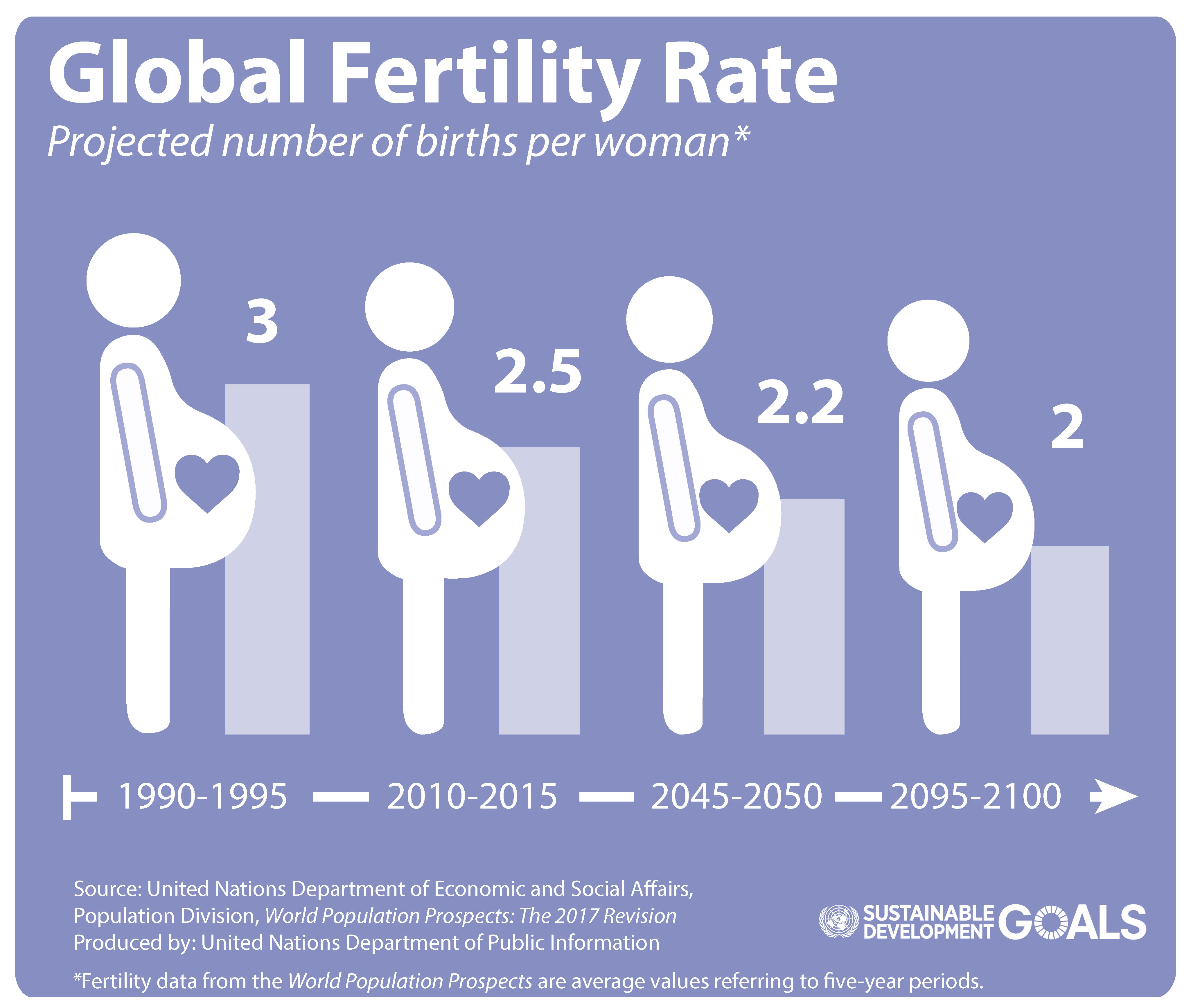Will Humans Go Extinct?
Economics

0
Around the world, fertility rates -- the average number of children that a woman gives birth to during their lifetime -- are plummeting. The minimal acceptable fertility rate that will keep the population steady is approximately 2.1, and if the number falls below that, the population starts to decline. According to The Lancet, at current fertility rates, researchers are expecting the global population to peak at 2064, before declining by almost one billion people by the end of the century.
Some may think that the projected population decline is a positive sign for the environment because carbon emissions and use of non-renewable resources would be reduced. However, as the aging population steadily increases to eventually outnumber the younger population, the inverted age structure will give rise to various social issues regarding healthcare, education, and the economy. Eventually, it will be the younger generations who will have to take on the burden of a massively aged population, and retirement might not be a viable option anymore.
A Success Story?
According to Statistics Korea, South Korea had the lowest fertility rate in the world in 2021 of 0.81, making it one of the 23 countries around the world that expect their population to halve by 2100, and possibly go extinct in a few centuries. Concerns are being raised about this strikingly low number. “If we take this as a compressed measure of basic life, it’s a troublesome figure,” said a professor of policy at Seoul’s Hanyang University, Lee Samsik, in one interview with the New York Times.
One of the predominant causes of the low fertility rate in South Korea and internationally is that more women are investing in education and their careers than in the past. On one hand this might seem like a success story; societies are getting closer to achieving gender equality; however, many find that having children acts as a hindrance to the development of their careers, especially for women because they are expected to take long maternity leaves.
Hence, these trends show that “life isn’t going well for a lot of young people”, a quote from the demographer with the Korea Institute for Health and Social Affairs in an interview with the New York Times. “For many, it’s natural not to have kids or marry at all.”
To Avoid the Worst
The low fertility rate issue is not completely unsolvable, and the two main policies that governments are implementing to manage it are subsidizing child care services and encouraging migration.
Subsidizing child care services lowers their price and allows working mothers to leave their children at child care and continue working. The primary goal of this policy is to diminish the financial burden of raising children, and encourage more people to have children. Subsidizing state-run daycare centers does have an effect in reducing their costs, but many parents prefer private daycare centers or kindergartens over state-run ones despite the expensive price as they provide education. According to the Korea Herald, some experts argue that governments should work on improving the quality of education in both private and public institutions for young children in order for the subsidy policy to be successful. This claim is supported by survey results that have shown that parents are willing to spend more as long as their child gets better education and care.
Encouraging immigration is another policy in place to boost the population and increase the number of people in the workforce. Statistics show that migration is a major contributing factor to a nation’s population growth. For example, according to a researcher from The Migration Observatory at the University of Oxford, Dr. Alessio Cangiano, 56% of the increase of the U.K. population from 1991 to 2018 was due to the direct contribution of net migration and the natural change that followed it. Encouraging immigration would not only keep the population stable and improve fertility rates, but benefit nations with other economic effects such as increasing the GDP per capita
2023/03/11

Share
Sieeun Rhee
Economics

Robinson Review Favorites
Songi Chai, Yubin Cho, Seohyun Jang..
Trending on Robinson Review
Contact Us





